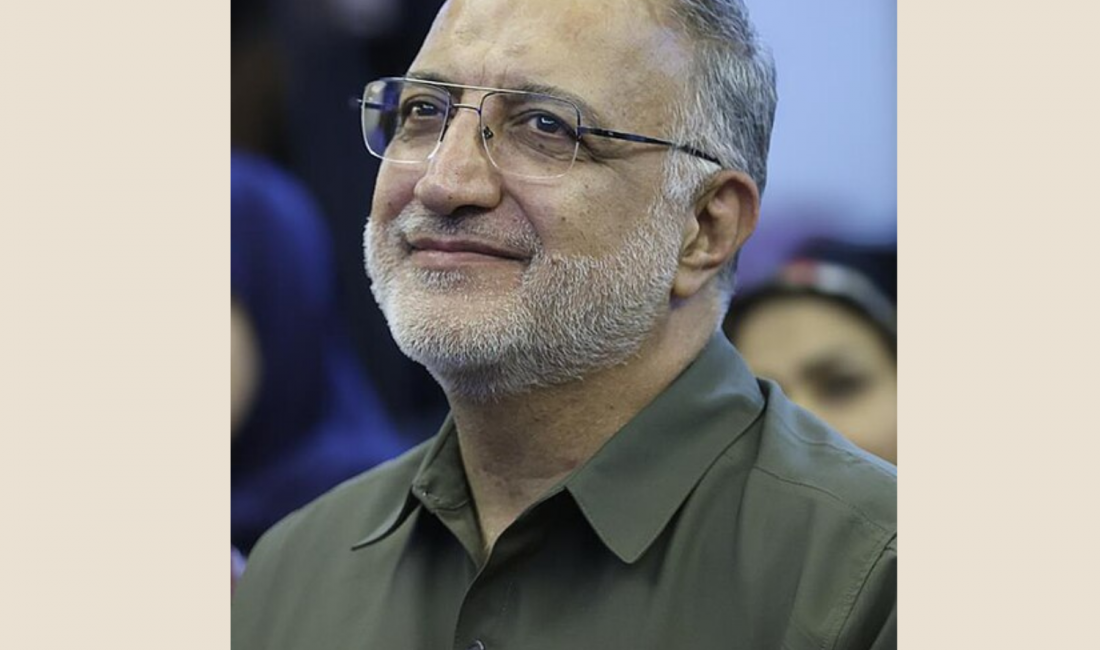'Small Steps at Local Scale Can Be a Starting Point to Huge Transformation'
When I met Tehran Mayor Alireza Zakani during the United Cities and Local Governments World Council conference in Xi’an, China, he wanted to talk about water.
That’s natural. International headlines have noted water shortages in his city, the Iranian capital, with just under 10 million people. (The metro area is 15 million).
Zakani smiles so frequently and broadly that his glasses can fall off the tip of his nose. He has a white beard, and black-and-gray hair.
“We have water pollution and groundwater exhaustion,” he told the conference plenary. “In response, Tehran municipality has launched innovative initiatives: the construction of waste water treatment plans with decentralized systems right in the heart of the urban neighborhoods.
In the past, water came from the ground, which led to several problems, including subsidence. For the past four years, he’s adopted a new strategy, using recycled water for irrigation. His plan is to make sure all irrigation comes from recycling water.
To do that, he is counting on neighborhoods to manage water supplies and on Tehran residents of doing more of the work of recycling waste water in homes and apartment buildings. A series of pilots over the last two years have been successful, he said. This has meant putting cleaning and recycling technologies in the hands of residents, who must be trained in how to handle water.
The mayor explained it in three parts. First, “the people get the information and knowledge of how to conserve water. The second point is we show them how to access the local water sources. Third, they learn how to recycle the water locally.
“This approach offers two simultaneous benefits. First, it reduces the load on the central water network. And second, it decreases pressure on drinking water resources.”
This begs, the mayor said;
“ a cultural question. How to insure the quality of the treated water? We want to meet national and international standards for quality control. To do that, we are installing real on-time monitoring of water quality.”
Zakani says that managing water this way—with direct participation of neighborhoods—is not just a plan for water regeneration “but a structural transformation in urban governance.”
“The challenge is to reach all the citizens in all areas of the city,” he said. “I really believe that small steps at neighborhood scale can be a starting point to huge transformation in full scale… -Great things can be done if public participation is available… People do not just express their views; they are made the part of the urban management.”
Tehran has long had a robust participatory democracy program, to give residents a direct role in setting local budgets. Tehran has been very active in the International Observatory on Participatory Democracy (of which Democracy Local is a member), and even has bid to host its annual forum and awards.
“Urban services, finance, transportation and now technology—are all based on public participation in our city," he says.
The water plan builds on participatory practice among Tehran residents, the mayor said.
Water quality is helped by adding green spaces; the mayor says that the amount of green space in Tehran has doubled in recent decades.
“We need to move to a city that is more resilient to water shortages, and green and sustainable for the future,” he said, adding: “We see the city not only as an entity, but as a body that breathes.”
The mayor closed our conversation with an invitation to attend the Tehran Urban Forum, a major event on city governance, November 26-30.




